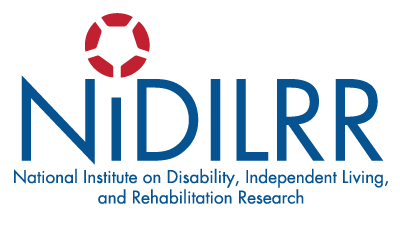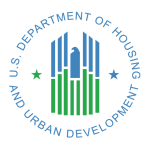Services & Interventions
Services & Interventions
Services &
Interventions
The Healthy Home Laboratory (HHL) develops and evaluates interventions to optimize health and independence in home settings. We work in conjunction with programs like the Community Aging in Place—Advancing Better Living for Elders (CAPABLE), the Center for Assistive Technology (CAT), and the Rehabilitation Engineering Research Center (RERC) PROMISE (Promoting Mainstream Wireless Inclusion Through Technology Services), to develop services and interventions to support older adults and people with disabilities to live more independently and to enhance their quality of life.

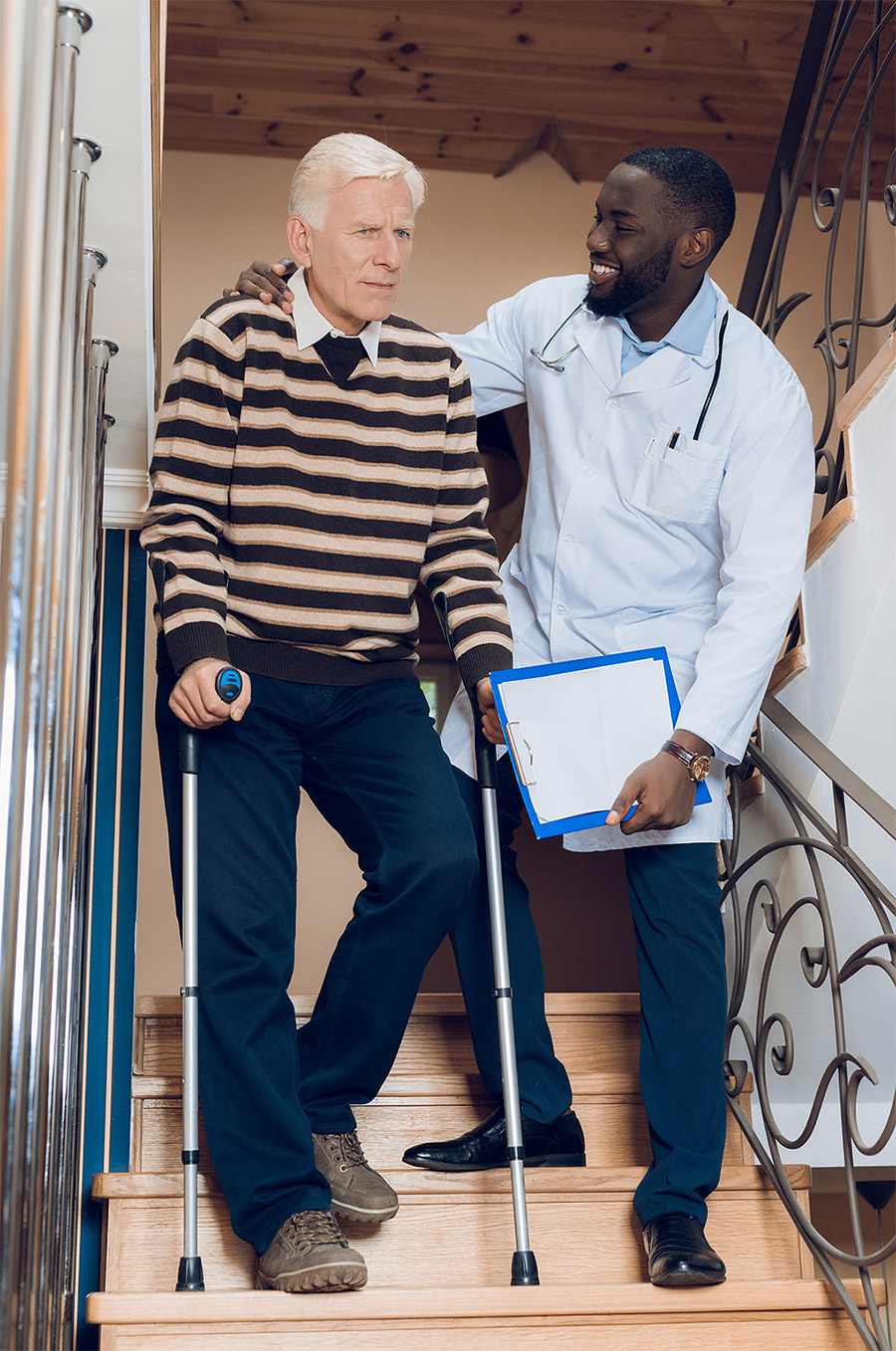
Community Aging in Place—Advancing Better Living for Elders (CAPABLE)
CAPABLE is an evidence-based and person-centered program that helps eligible older adults to age in place. Eligible older adults receive services from a team composed of an occupational therapist, a nurse, and a licensed handy worker, who work together with the older adult to set personalized goals and work towards becoming more independent.
The HHL team has partnered with the Allegheny County Area Agency on Aging (AAA) and the developers of CAPABLE at Johns Hopkins to build on the original program by:
- Recruiting through the AAA
- Including care partners (‘family members or friends’), while maintaining CAPABLE’s person-centered approach
- Supporting older adults and their care partners who do not qualify for Medicaid
Publications
- Implementing CAPABLE With Care Partners Through an Area Agency on Aging: Identifying Barriers and Facilitators Using the Consolidated Framework for Implementation Research
- Community Aging in Place, Advancing Better Living for Elders (CAPABLE) program: Understanding the potential involvement of care partners
Promoting Mainstream Wireless Inclusion Through Technology Services (PROMISE – MSHT/ASSIST)
Mainstream wireless products such as smartphones, tablets, smart home devices, smart speakers, wearables, and remote monitors are becoming increasingly ubiquitous and hold great promise for improving health, independence, participation, and quality of life of people with disabilities and older adults. However, the impact of such technologies is still limited by the lack of access to and effective use of such technologies. The RERC-PROMISE is working on a Smart Home Service Delivery to develop and evaluate an evidence-based model intervention—ASSIST (Autonomy, Safety, and Social Integration via Smart Technologies), for delivering mainstream smart-home technologies (MSHT) as assistive technology to support independent living and community integration of people with physical disabilities and older adults who are at risk of institutionalization.
Visit the program website by clicking here.
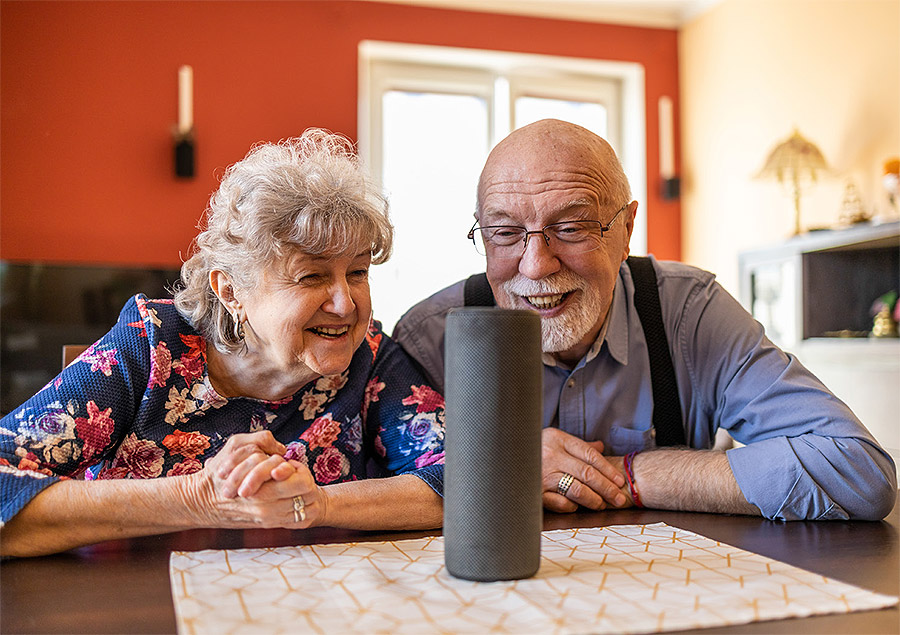
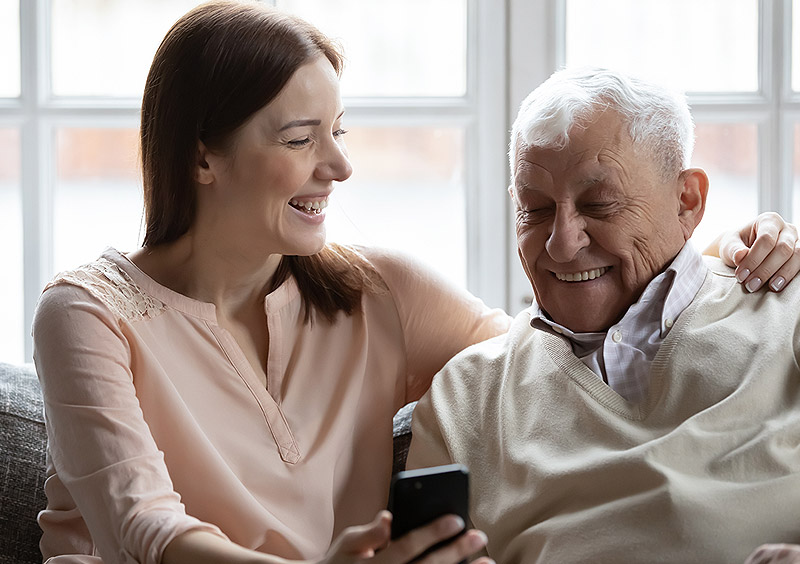
SmartRehab Mobile App Project: A Systemwide Scale-up
Mobile platforms can efficiently facilitate access to helpful tools and information to support self-management for individuals with disabilities and their family care partners. SmartRehab is a self-management support application that includes 1) risk assessment for individuals with disability and their family care partners; 2) easy access to information, skills training, and problem-solving for family care partners as they support a loved one with a disability; 2) information and tools to encourage care partners to care for their own emotional and physical health. Our current implementation of SmartRehab is among family care partners of individuals with gynecologic cancers. The long-term goal of this project is to create an mhealth platform that can enhance function and participation in valued life activities and is easily adaptable and scalable individuals in a wide range of chronic illnesses and disabilities.
Visit the project website by clicking here.

SmartRehab Mobile App Project: A Systemwide Scale-up
Mobile platforms can efficiently facilitate access to helpful tools and information to support self-management for individuals with disabilities and their family caregivers. SmartRehab is a self-management support application that includes 1) risk assessment for individuals with disability and their family caregivers; 2) easy access to information, skills training, and problem-solving for family caregivers as they support a love one with a disability; 2) information and tools to encourage caregivers to care for their own emotional and physical health. Our current implementation of SmartRehab is among family caregivers of individuals with gynecologic cancers. The long-term goal of this project is to create an mhealth platform that can enhance function and participation in valued life activities and is easily adaptable and scalable individuals in a wide range of chronic illnesses and disabilities.
Visit the project website by clicking here.
Supporting Family Care Partners for Persons with SCI, SB, and CP using Mobile Health: A Dual-Target Intervention
Family members are often the primary care partners for older adults and individuals with disabilities. Unlike professional healthcare providers, family care partners often enter into this role without formal preparation or training. Family care partners experience a high risk of adverse health outcomes due to the unique challenges of caregiving. Currently there exist no intervention studies that are using mobile health technology (mHealth), even though this technology has great potential for this type of intervention. This research project is a continuation of our two extensive lines of research at the University of Pittsburgh: family caregiving interventions and mobile health interventions.
The iMHere 2.0 Caregiver mHealth system includes (1) an app suite for supporting and monitoring care recipients, and (2) another app suite for care partners. The app suite for care partners includes ten modules and resources to improve caregiving skills, psychotherapy interventions to relieve stress, strategies for a healthier lifestyle, and video and chat to obtain social support.
Visit the project website by clicking here.
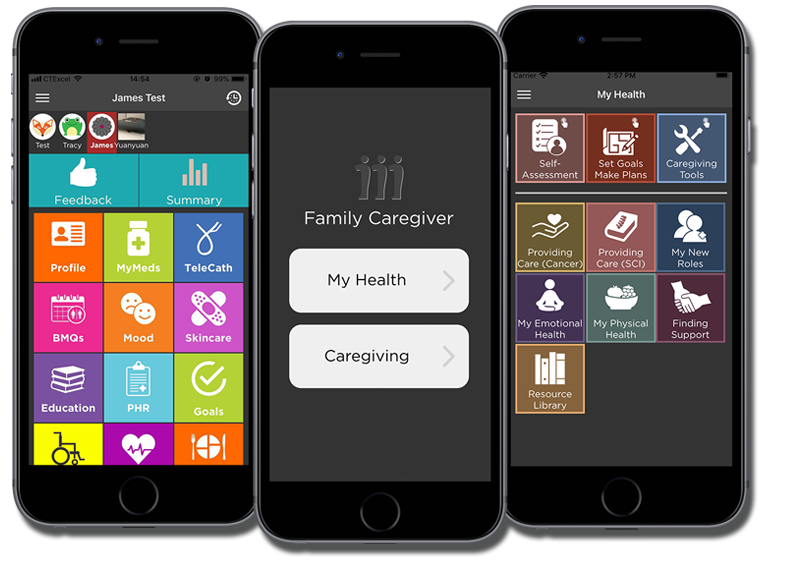
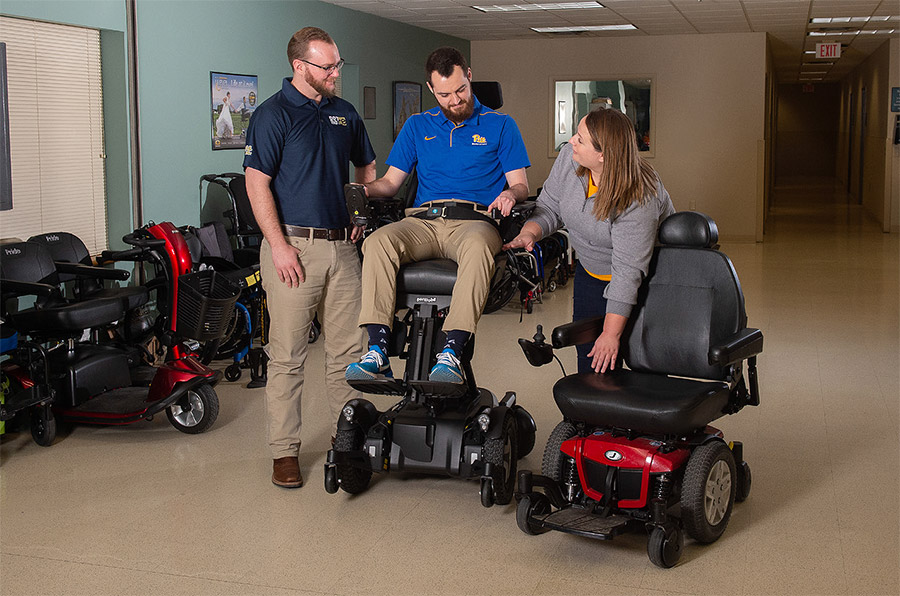
Center for Assistive Technology (CAT)
CAT a joint program of University of Pittsburgh Medical Center (UPMC) and the University of Pittsburgh, is an outpatient center that focuses on provision of various appropriate assistive technology (AT) services and devices ranging from personal mobility, seating and positioning, smart home technology, home accessibility, augmentative communication devices, audiology, computer access, adaptive driving, and recreational devices. The CAT has evolved to become a model AT service delivery program recognized both nationally and internationally. The majority of the clinicians and faculty providing services at CAT are board certified RESNA Assistive Technology Professionals.
Visit the program website by clicking here.

